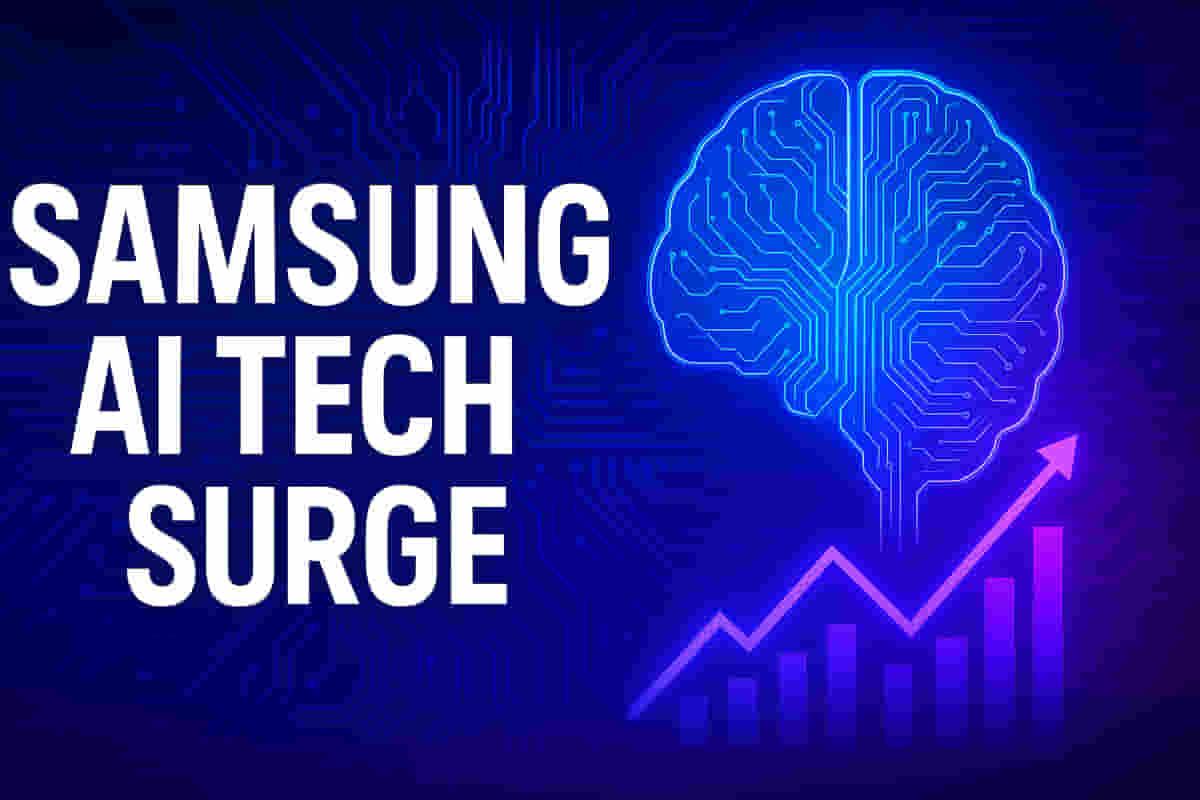Samsung Electronics' Semiconductor Unit Reports 80% Profit Surge Driven by AI Demand, Eyes HBM4 Production
Tech
|
30th October 2025, 3:48 AM

▶
Short Description :
Detailed Coverage :
Key Highlights: Samsung Electronics' semiconductor arm has announced a better-than-expected 80% profit surge for its September quarter, signaling a robust recovery driven by the booming global demand for artificial intelligence (AI) hardware.
Future Focus: The company revealed its strategic plan to prioritize mass production of HBM4, the next generation of High Bandwidth Memory, designed to work seamlessly with AI accelerators. This places Samsung in direct competition with SK Hynix, which has been leading in this segment. Samsung also echoed industry sentiment that the substantial spending on AI infrastructure will continue through the current quarter and into the next year.
Financial Performance: The chip division posted an operating profit of 7 trillion won, significantly exceeding the 4.7 trillion won predicted by analysts. The memory chip business, a critical component of Samsung's diverse operations, recorded its highest-ever quarterly revenue, largely due to strong sales of HBM3E chips. Overall, Samsung's net income for the period also beat market expectations.
Investment and Competition: To bolster its position, Samsung Electronics has allocated a substantial 47.4 trillion won (approximately $33 billion) for capital spending in 2025, aiming to enhance and expand its production capacity. This move is part of its effort to reclaim leadership in the AI memory market against competitors like SK Hynix, especially as major tech firms such as OpenAI and Meta Platforms continue to invest heavily in AI computing power.
Impact This strong performance and strategic investment signal Samsung's renewed competitive edge in the critical AI semiconductor market. It indicates potential revenue growth and market share gains, especially as AI adoption accelerates across industries. The company's renewed focus on next-gen memory solutions like HBM4, coupled with aggressive capital expenditure, suggests a positive outlook for its semiconductor business. The market reaction, with its shares jumping over 5% in Seoul, reflects investor confidence.
Impact Rating: 8/10
Difficult Terms: Semiconductor arm: Refers to the division of Samsung Electronics that designs and manufactures microchips. AI demand: Refers to the growing need for computing power and specialized hardware to develop and run artificial intelligence applications. High Bandwidth Memory (HBM): A type of advanced memory chip designed for high-performance computing, particularly for AI and graphics processing, offering much faster data transfer rates than conventional DRAM. HBM4: The next generation of High Bandwidth Memory, promising even higher performance and efficiency for advanced AI workloads. AI accelerators: Specialized hardware components, like GPUs or TPUs, designed to speed up artificial intelligence computations. Nvidia Corporation is a leading producer of these. Operating profit: The profit a company makes from its core business operations before accounting for interest and taxes. Capital spending: Money spent by a company to acquire or upgrade physical assets such as property, industrial buildings, or equipment. HBM3E: The current generation of High Bandwidth Memory, an improvement over HBM3. Net income: The company's total earnings after all expenses, interest, and taxes have been deducted from revenue.